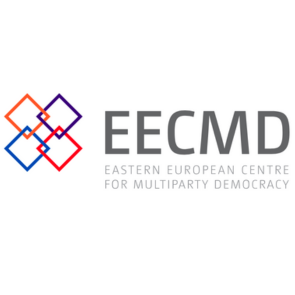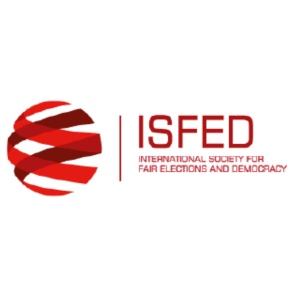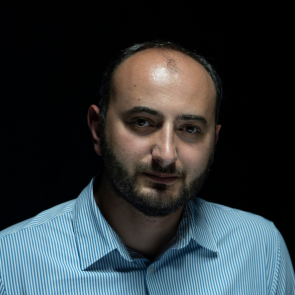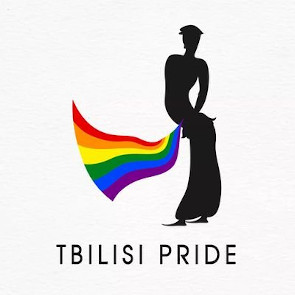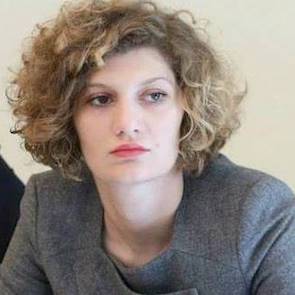Defamation and Intimidation Attacks against Human Rights Defenders in Georgia must be investigated
Front Line Defenders strongly condemns the alarming surge of defamation and intimidation assaults targeting Georgian human rights defenders amid the ongoing mass protests in Tbilisi, spurred by the re-emergence of the proposed Law on Transparency of Foreign Influence. Despite assurances from its proponents to shelve the legislation, it resurfaced for consideration in the Parliament in mid-April. Since then, the debate has been accompanied by almost daily mass protests in front of the Parliament Building in Tbilisi. If enacted, the law would add reporting obligations, subjecting human rights defenders to scrutiny and administrative penalties. As the final parliamentary reading of the widely criticised law, scheduled for the week of 13 May 2024, approaches, the threats against human rights defenders and civil society representatives intensify.
On 9 May 2024, unknown individuals vandalised the offices of many prominent human rights organisations with posters and graffiti. The posters followed the same pattern: they had photographs of the organisations' leadership, stating the name of the human rights defender, accompanied by offensive comments about them "selling out" and being "traitors." Other posters and graffiti were not personalised yet employed similar defamatory messaging.
Among the human rights defenders who were personally targeted are Eka Tsereteli from Women's Initiative Supporting Group, Nona Kurgovanidze from Georgian Association of Young Lawyers, Giorgi Kldiashvili from Institute for Development of Freedom of Information, Nino Dolidze from International Society for Fair Elections And Democracy, David Chipashvili from Green Alternative, Aleko Tskitishvili from Human Rights Center, Baia Pataraia from Union Sapari, Vladimer Mkervalishvili from Rights Georgia, Nino Zuriashvili from Studio Monitori, Gela Mtivlishvili from Mits Ambebi, Levan Tsutskiridze from Eastern European Center for Multiparty Democracy, Zaza Abashidze from Governance Monitoring Centre, Ucha Nanuashvili, Tamar Khidasheli from Democracy Research Institute, Giorgi Tabagari, Mariam Kvaratskhelia, and Ana Subeliani from Tbilisi Pride, Tamar Kintsurashvili from Media Development Fund, and Eduard Marikashvili from Georgian Democracy Initiative.
Since 7 May 2024, more than 100 Georgian HRDs and CSOs have been targeted through an orchestrated attack with intimidating calls over phones and various messengers. Human rights defenders received calls from numbers falsely appearing as registered in foreign countries. Those defenders who picked up received threatening messages to stop protesting against the foreign agents' law. Many reported that the attackers also subjected their relatives, including elderly relatives, spouses, and children, to similar intimidations, posing threats aiming to deter support for the Tbilisi protests. On 8 May 2024, a Georgian Dream party representative announced their plan to set up a database that will include people supporting protests against the draft foreign agent law. This received criticism from other political parties and civil society representatives, fearing the mentioned database would be misused to guide repressive measures.
The law targets non-governmental groups and media outlets that source more than 20% of their funding externally, requiring them to register with the Ministry of Justice as "organizations serving the interest of a foreign power." The Georgian Dream Party first introduced a similar "foreign agents law" in March 2023, withdrawing it from consideration after two days of mass protests in Tbilisi. Among other things, it led to Georgia receiving an EU candidacy status in December 2023, a desired accession path for most of the population. In April 2024, the same party introduced an almost identical law for consideration in the Parliament, now titled the "Law on Transparency of Foreign Influence." Georgian human rights defenders have widely criticized the call, underscoring the influence of pro-Russian agendas, citing the country's 2014 "foreign agents law" that has been used by the Russian authorities to dismember civil society. This mid-April legislative maneuver led to expansive, predominantly peaceful protests, erupting in Tbilisi and other big cities across the country, with hundreds of people gathering almost daily. Local media and human rights defenders have documented the police deploying pepper spray, tear gas, and water cannons to disperse protesters. Riot police have also been seen violently assaulting and detaining protesters, often without warning. Human rights defenders reported that since mid-April, over 100 people have been violently detained and are now facing charges.
Human rights defenders in Georgia continue their tireless, peaceful, and legitimate work, united to oppose the laws on foreign representatives. The state must recognise the crucial role of human rights defenders and civil society representatives and create an enabling environment for their human rights work. Front Line Defenders is highly concerned for the safety of human rights defenders working in such a context, as it believes they are being targeted due to their peaceful and legitimate human rights work. Front Line Defenders strongly condemns the alarming surge of defamation and intimidation assaults targeting Georgian human rights defenders amid the ongoing mass protests in Tbilisi, spurred by the re-emergence of the Law on Transparency of Foreign Influence. The organization urges the Georgian authorities to investigate the attacks and bring the perpetrators to justice immediately. Front Line Defenders urges Georgian authorities to immediately and unconditionally remove the Law on Transparency of Foreign Influence and commit not to return it for consideration.
